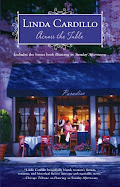
To make your unknown known — that's the important thing. (Georgia O'Keefe)
- Set a goal. When my children were small, I managed, with the help of my husband, to commit to an entire day of writing every two weeks. I left the house early and hid out in a remote carel at our community college library. I had eight hours, and I was determined to finish the day with eight pages. Sometimes I’d find myself at 3:00 p.m. with only two or three pages of my notebook filled. But I pushed on, and every time, walked out of the library with my goal fulfilled. I still set a daily goal for myself.
- Set a timer. This was a composite of the “timed writing” exercises in various workshops I attended and a housekeeping tip I found on-line. The theory is that we will undertake unpleasant tasks if we think we only have to do them for a short time. I use a small electronic timer (they don’t tick), set it for 20 minutes, turn its face away from me, and don’t do anything else except write until the timer buzzes. The practice has trained me like Pavlov’s dog to ignore everything but the empty page in front of me.
- Write by hand. This may not be for everyone, but when I switched from composing on the computer to writing on narrow-ruled pads it freed me to carry my writing with me and use small pockets of time whenever I found them. I also discovered that the visceral activity of moving my hand across a page with a smooth-flowing pen was a more effective way for my brain to get the words out than hovering my hands above a keyboard.
Writers write. Find your own tools for making sure that you do.





No comments:
Post a Comment